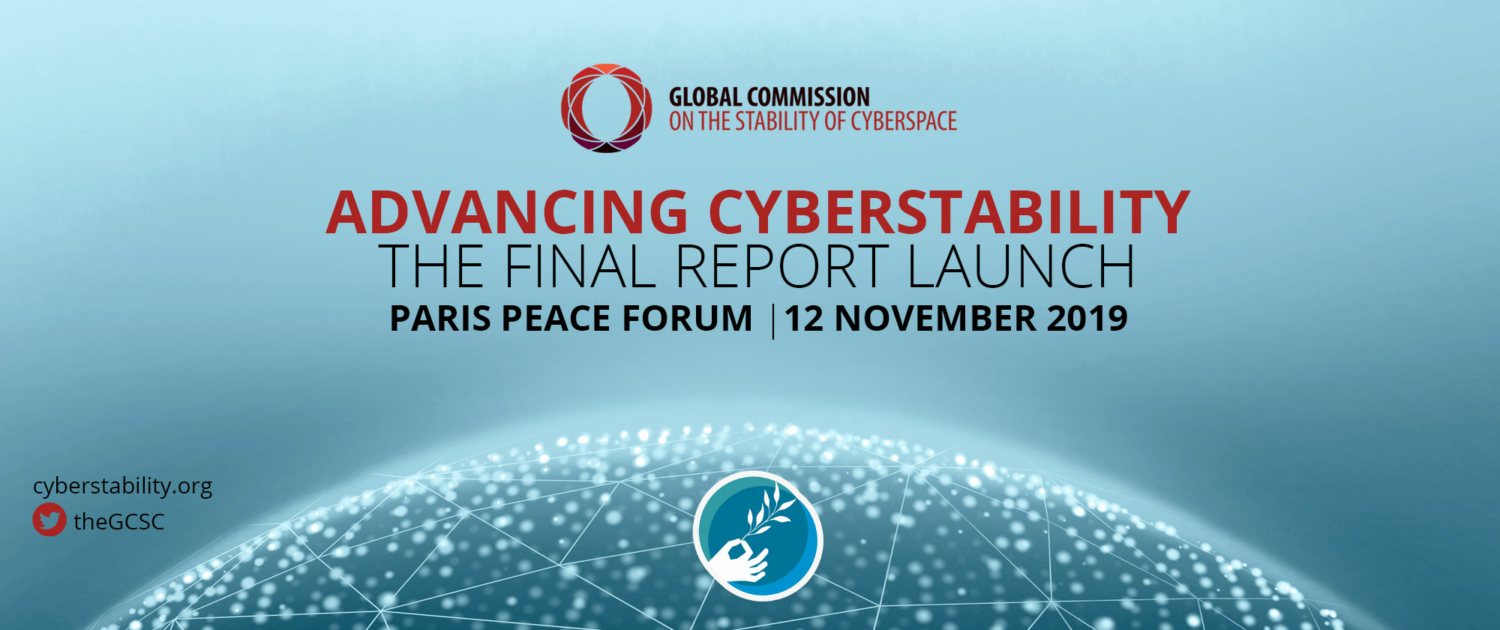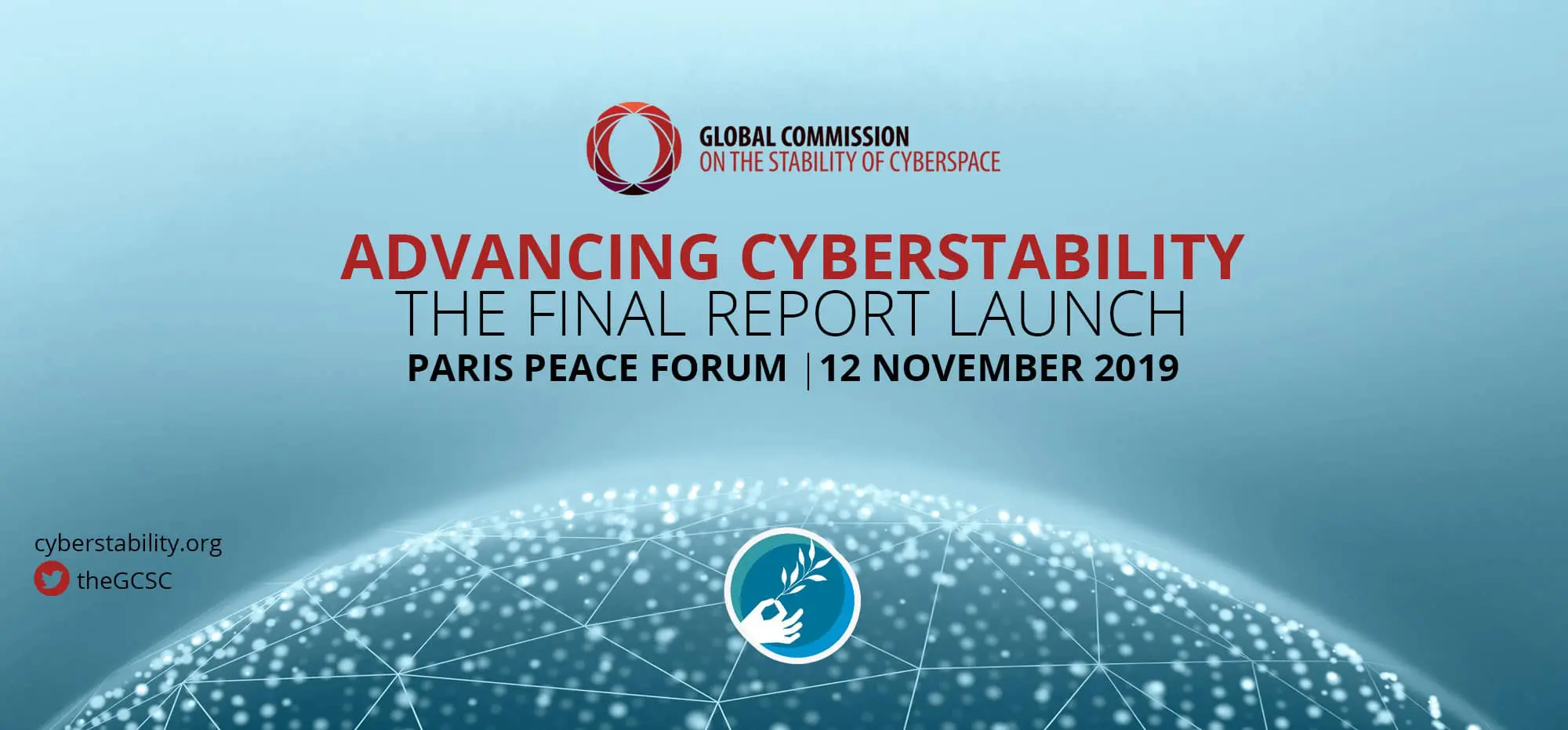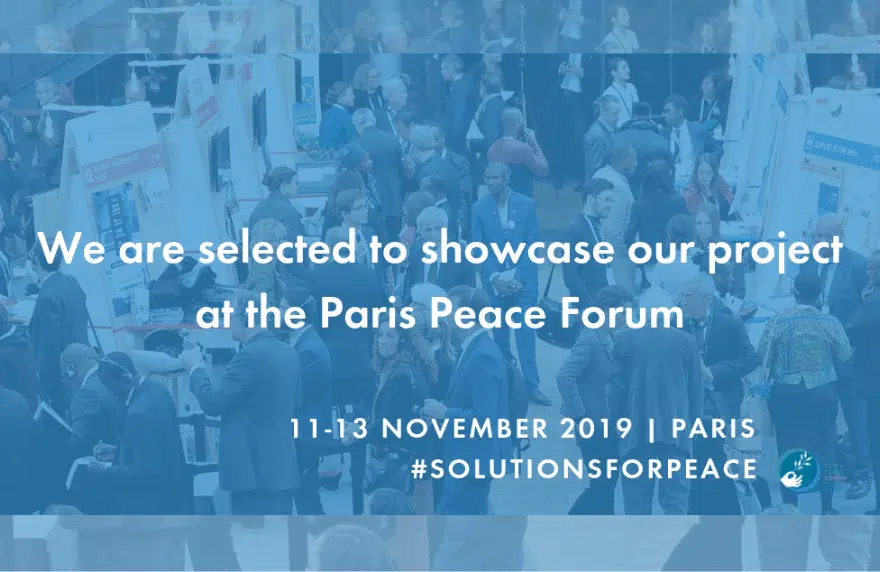On 12 November 2019, the Global Commission on the Stability of Cyberspace (GCSC) will present its report “Advancing Cyberstability” at the Paris Peace Forum. The report represents the culmination of the Commission’s efforts over the past three years, offering a cyberstability framework, norms of behavior for state and non-state actors, and recommendations for enhancing stability at a critical juncture in the future of cyberspace.
Since its launch at the 2017 Munich Security Conference, the GCSC has been the only multistakeholder initiative of its kind to address pressing issues related to the stability of cyberspace. Over the last three years the Commission has had the opportunity to develop its ideas and engage with various experts and stakeholder groups, and its report is the culmination of these discussions. In addition to convening four meetings per year, the Commission has participated in many other discussions and events across the globe, gaining valuable input in the process.
The work of the Commission was born out of a desire to address rising social and political instability as a result of malicious behavior in cyberspace. Since the Commission’s inception the situation has only further deteriorated due to the rise in the number and sophistication of cyberattacks by both state and non-state actors, which increasingly puts the considerable benefits of the rise of cyberspace at risk. Simply put, people and organizations may no longer be confident in their ability to use cyberspace safely and securely or be assured of the availability and integrity of services and information. Likewise, governments are facing the increasing challenge of inadvertent escalation of political tensions due to malicious behavior in cyberspace. In this increasingly volatile environment, there is an apparent lack of mutual understanding and awareness among communities working on issues related to international cybersecurity. Through its work, and with this report, the Global Commission seeks to contribute to international efforts to address these challenges.
The GCSC has always believed that solutions can be found through managing this change in relative peace, but that the dialogue must involve all relevant stakeholders. Cyberspace is a multistakeholder environment: those who build and manage cyberspace, and those who respond to attacks on and through cyberspace, are as likely to be non-state actors as government officials. The GCSC Commissioners were selected to reflect this characteristic, and they have dedicated a significant amount of time and resources towards developing and refining the proposals contained in the final report.
The report of the Commission will be available online on 12 November. Following the release, the GCSC members will continue to advocate and engage with their respective communities. Input and feedback from these groups represented the bedrock of interactions with the wider community of state and non-state experts and will form the basis of the advocacy of the report going forward.
To find out more about the Commission and its proposals visit the website www.cyberstability.org, or follow the GCSC updates on the launch of the report on social media (@theGCSC and @GlobalCommission).






